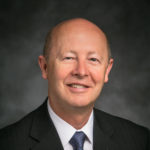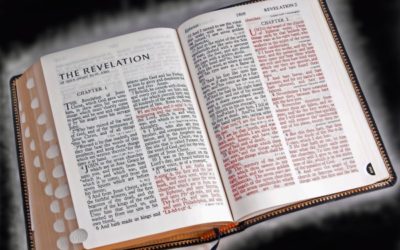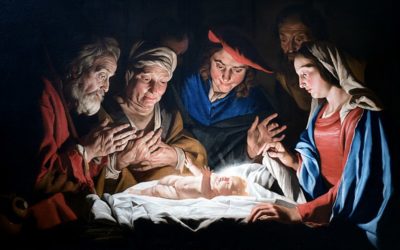The Savior in His Great Intercessory Prayer, declared, “And this is life eternal, that they might know thee the only true God, and Jesus Christ, whom thou hast sent” (John 17:3). During his famous April 1844 general conference address that has come to be known as the King Follett Discourse, Joseph Smith added, “If men do not comprehend the character of God they do not comprehend themselves.” By the time Joseph uttered that famous line, he had been working to comprehend the nature of God throughout most of his life and had learned a great deal.
By Study
Through revelation, including visions, Joseph Smith came to understand that the godhead consisted of three beings: (1) God the Father; (2) His Son, Jesus Christ; and (3) the Holy Ghost. In addition, he came to realize that God was sealed to a Heavenly Mother, and that they operated as Heavenly Parents in advancing the great work and glory of bringing to pass the immortality and eternal life of Their children (Moses 1:39).
Assignment
Read the following chapters from the Doctrines of the Gospel Teacher Manual and study the scriptures they contain:
“Jesus Christ, the Son of God”
Read also the following Gospel Topics essay:
In addition, read the following Church History Topic:
By Faith
Knowing about God and knowing God are two different things. Those who spend their entire lives sterilely studying about God will never gain true spirituality. President David O. McKay—ninth president of The Church of Jesus Christ of Latter-day Saints—taught, “Spirituality is the highest acquisition of the soul, ‘the divine in man—the supreme crowning gift that makes him king of all created things.’ It is the consciousness of victory over self, and of communion with the Infinite. To acquire more and more power, to feel one’s faculties unfolding, and one’s soul in harmony with God and with the Infinite—that is spirituality. It is that alone which really gives one the best in life.”
Knowing God brings true joy in life. We cannot know God unless we do what God does. In John 5:19, the Savior said, “The Son can do nothing of himself, but what he seeth the Father do: for what things soever he doeth, these also doeth the Son likewise.” In other words, Jesus spent His life doing what His Father did. As He prepared for Gethsemane and Golgotha, Christ asked His Father to bless His disciples and all who followed them “that they all may be one; as thou, Father, art in me, and I in thee, that they also may be done in us” (John 17:21). He did not mean one in person, since the Father and the Son are separate beings, as are each of us. What He meant in being one in purpose.
God’s purpose is “to bring to pass the immortality and eternal life of man” (Moses 1:39). We will come to know God fully only if we align our life’s purpose with His and do all we can to advance the immortality and eternal life of God’s children.
Assignment
Ask yourself how you use your time. Keep a rough time journal this week to see how much of your time is spent in helping bring to pass the salvation and exaltation of God’s children. Then see if you can figure out how to better repurpose your time to advance God’s purpose.
For example, can you spend a few minutes a day teaching the gospel to your children, grandchildren, neighbors, or friends by what you say or by your example? Can you assist somehow in missionary work? Can you do some temple or family history work? Can you assist someone who is needy?
Start off small so you don’t become overwhelmed. Pray for help in deciding what to do, and listen to see what the Spirit prompts. You may need to sacrifice something of lesser value for something greater. Or you may figure out how to take something you are currently doing and redirect it toward advancing God’s work.
Credit for image at top of page: Stock image from depositphotos.com.



